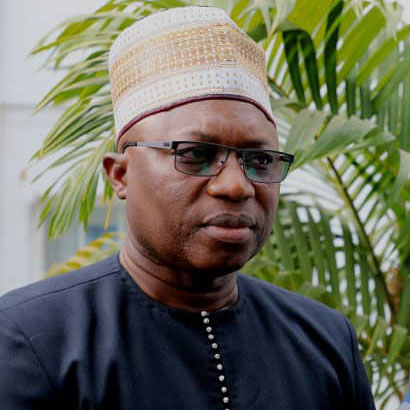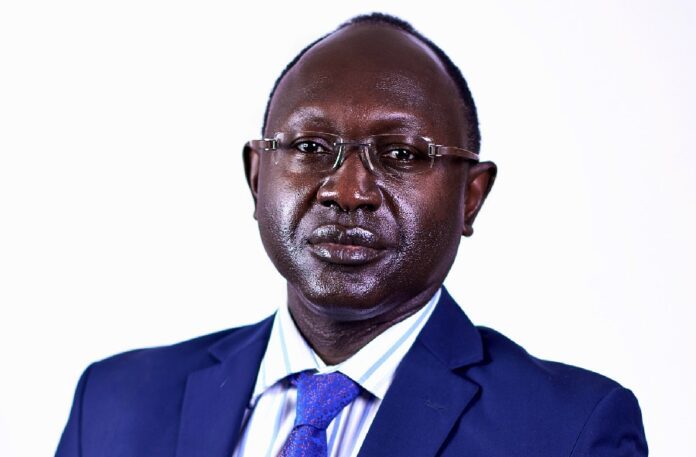By: Musa S. Sheriff
Seven state-owned enterprises (SOEs) of the government The Gambia special audited report by Ernst & Young LLP- has been hijacked and addressed to the Finance Minister, Mambury Njie and former Managing Director of Gambia National Petroleum Corporation (GNPC) instead of the Auditor General as required by law., The Voice can report. The Auditor General of the Gambia who, by virtue of the National Audit Act 2015, is the one responsible for the auditing of SOEs including hiring external auditors to carry out special audits on his behalf. This report was sent directly to the Finance Minister at the exclusion of the Auditor General, the line Ministries of the respective SOEs and the Secretary General,” said official source at the ministry of finance
Special Audit of Seven State Owned Enterprises in The Gambia, final of August 19 2019 and signed by Maryam Hussain, Partner for and on behalf of Ernst & Young LLP revealed that the details of each of the seven SOEs’ audit findings contained in the 445-page report has been submitted to the Finance Minister, Mambury Njie, by the UK auditing firm, Ernst & Young LL, since August 2019.
“One of the principal objectives of the Special Audit was to assess and obtain an in-depth understanding of the financial performance of the seven SOEs that were subject to gross financial mismanagement during the previous government with the mandate to identify the key financial issues and how they have impacted the SOE’s operations.
The auditors complained of significant issues that affected their work such as the restrictions in the availability of reconciling and supporting financial information and lack of access to individuals who could satisfactorily respond to urgent queries.
Abridged version of the report and the key issues highlighted during the forensic audit of the seven SOEs (GNPC, GCAA, NAWEC, GPA, SSHFC, GAMTEL and GAMCEL).
Significant Findings
The forensic audit report on GNPC raised some serious issues which could negatively impact the profit for 2017, revealing that GNPC failed to provide complete and verifiable documentation to the auditors.
Ernst & Young LLP pointed out that in the absence of 2017 Financial Statements GNPC provided a set of draft Management Accounts on January 7, 2019 along with an underlying Trial Balance for the year ended December 31, 2017.
However, the Trial Balance was subject to significant over-ride adjustments as the Finance Team did not have confidence in the final balances from the underlying GL.
The auditors concluded therefore that from the summary of findings, “it is evident that accounting policies and procedures at GNPC are deficient and consequently little or no reliance can be placed on the 2017 draft Management Accounts”.
The External Auditors issued a “Disclaimer of Opinion” for the 2016 Financial Statements. They stated they were unable to obtain sufficient and appropriate audit evidence to provide an opinion on the Financial Statements due to the significance of the matters they discovered.
“One significant finding worthy of mention here is the acquisition of land in Banjul to construct a new station. The auditors reviewed the 2018 Board minutes which indicated that the GNPC Board expressed concerns over the transparency of large transactions conducted by management. The minutes detail their specific concerns in relation to a land deal entered into by GNPC management,” Ernst & Young LLP noted.
According to the audit report GNPC senior management informed EY auditors that all the land for its existing stations has been gifted by the Government of The Gambia.
However, in their review of the March 2018 Board minutes, the auditors noted that GNPC had begun the process of purchasing a piece of land in Banjul. This is an initiative to purchase strategic land for future GNPC petrol stations and GNPC has a committee of Managers who advise on various aspects of property deals.
The report further revealed that the price discussed was GMD 17m (USD 354,000), with the board minutes indicating GNPC had already paid 50% of this price.
The report pointed out that vendors of the land per for sales agreement are Wilfred I.N Anderson and Mathias George, revealing that they are described as the beneficial owners of the property which forms part of the estate of the deceased Mr. Wilfred Manly-Rollings.
According to per the minutes, one of the Board members set forth their opinion that “…the price in question was exorbitant for the property in question.”
The minutes noted that no prior approval was sought from the National Environment Agency (“NEA”) to construct a service station, and no feasibility study was conducted.
The minutes also note that a financial and business model was not performed or evaluated prior to the investment.
“The minutes indicate that the land was purchased without the approval of the GNPC Board by the current Minister of Finance, Mr. Mambury Njie, who was then the Managing Director of GNPC,” the report revealed.
Per the minutes, the report revealed that all the nine stations of the petroleum enterprise were free allocation from Government.
However, the report stated that Mr. Njie explained the strategic importance of that particular site to central Banjul sales and highlighted the need to move quickly and without Board approval.
Njie noted this was because GNPC had lost several previous strategically advantageous sites, and that he wanted to maintain commercial confidentiality around the purchase.
“The auditors attempted to independently verify the amount with the valuation company, Sphinx Associates Gambia Co. Ltd. The company informed the audit team that a valuation had been performed on the property, however they would only disclosed this information to a third party, upon receipt of permission from their client. They clarified that their client was not GNPC. The entire amounts of D17m have been paid to the land owners,” Ernst & Young LLP revealed.
The forensic audit also discovered that fuel movements from the Gam Petroleum depot to the nine stations are incorrectly treated as sales to customers, and the resulting balance with the stations are incorrectly recognized as receivable balances. As at December 31, 2017 Trade Receivables from GNPC stations are valued at GMD 131.9 m (USD 2.7m).
This improper accounting treatment could result in assets and revenues being overstated at the end of the financial year. “The correct accounting treatment is to treat the fuel at the depot and the nine stations at cost until sold to a third party”, the auditors reported.
The forensic audit also highlighted the diversion of the GNPC funds to finance The Office of the President has historically accessed the upstream funds collected by GNPC in the USD bank accounts. This resulted in the GMD 251.7m (USD 5.7m) write-off of Government debt and could account for further cash diversions.
The auditors concluded that it is evident that the accounting policies and procedures at GNPC are deficient (as regards the absence or non-application of accounting policies, absence of essential accounting procedures and absence of supporting documentation for accounting entries) and consequently little or no reliance can be placed on the 2017 draft Management Accounts. Moreover, Senior Management does not have the relevant, accurate, up-to-date financial information to manage the business effectively.
As a consequence, the EY auditors recommend that consideration is given to GNPC not being subject to an External Audit for the next two years while Senior Management rectify these serious flaws and become able to produce Financial Statements that are of auditable quality.




